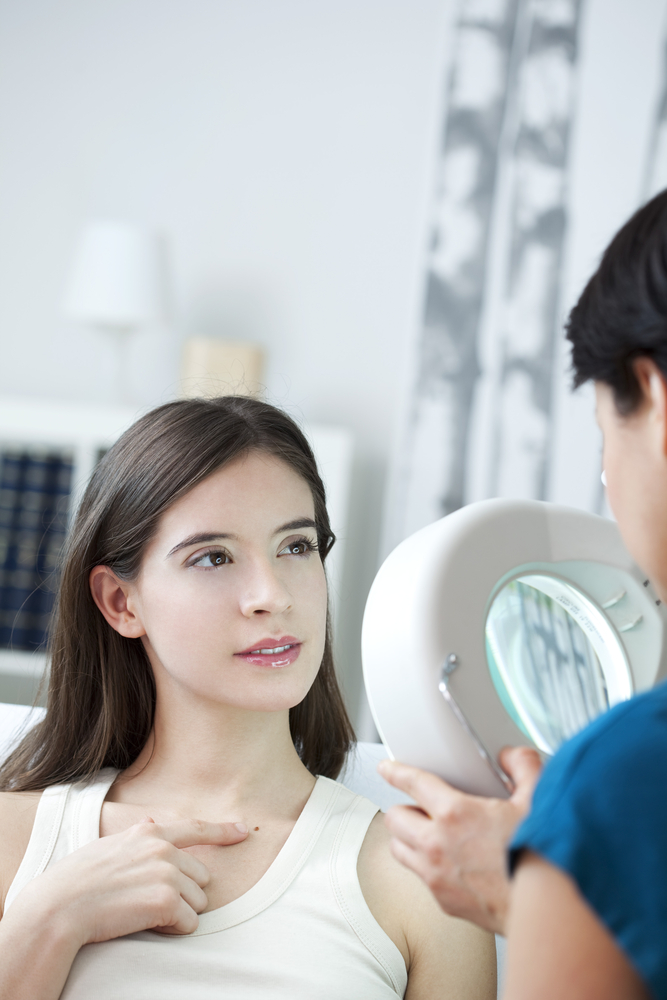 Skin cancer is the most common cancer in the United States. More than two million people are diagnosed with this condition each year, according to the Skin Cancer Foundation, and many of those individuals will have basal cell carcinomas (BCCs). If you’ve discovered an unusual bump, lesion, or sore on your skin, you should immediately make an appointment to have the area examined. Dr. Adam J. Mamelak and Dr. Miriam L. Hanson, our skilled dermatologists, often diagnose BCCs based on number of factors. If any of the following apply to you, please schedule an appointment with a qualified physician soon.
Skin cancer is the most common cancer in the United States. More than two million people are diagnosed with this condition each year, according to the Skin Cancer Foundation, and many of those individuals will have basal cell carcinomas (BCCs). If you’ve discovered an unusual bump, lesion, or sore on your skin, you should immediately make an appointment to have the area examined. Dr. Adam J. Mamelak and Dr. Miriam L. Hanson, our skilled dermatologists, often diagnose BCCs based on number of factors. If any of the following apply to you, please schedule an appointment with a qualified physician soon.
The first step in identifying a BCC is knowing what to look for and where to look. BCC is most commonly found on exposed areas of the skin, such as the face, head, neck, hands, forearms, and scalp. However, signs of skin cancer can occasionally occur on the back, legs, and other regions as well. For this reason, we recommend you ask a significant other, spouse, or friend to check your skin for visible signs of changes. You may also wish to use a mirror for this purpose. BCCs may present in many ways, though the most prevalent appear like pimples, flesh-colored, pink, or red bumps, or sores that either do not heal or heal briefly only to return again. In some cases, they may resemble scars or textural changes. If you’ve recently discovered a scar you can’t recall getting, Dr. Mamelak or Dr. Hanson can help you analyze the area of concern.
Since BCCs can appear in a variety of forms, any changes in your skin should be examined by a dermatologist. A family or personal history of developing BCCs may also help you determine if you may have symptoms of this condition. Regular skin cancer screenings are an essential part of protecting yourself, as BCCs do not heal on their own. Though typically not dangerous, BCCs potentially can be disfiguring, so we recommend you treat these lesions promptly.
If you have additional questions about basal cell carcinomas, or if you wish to schedule an appointment with Dr. Mamelak or Dr. Hanson, please contact our office today.

